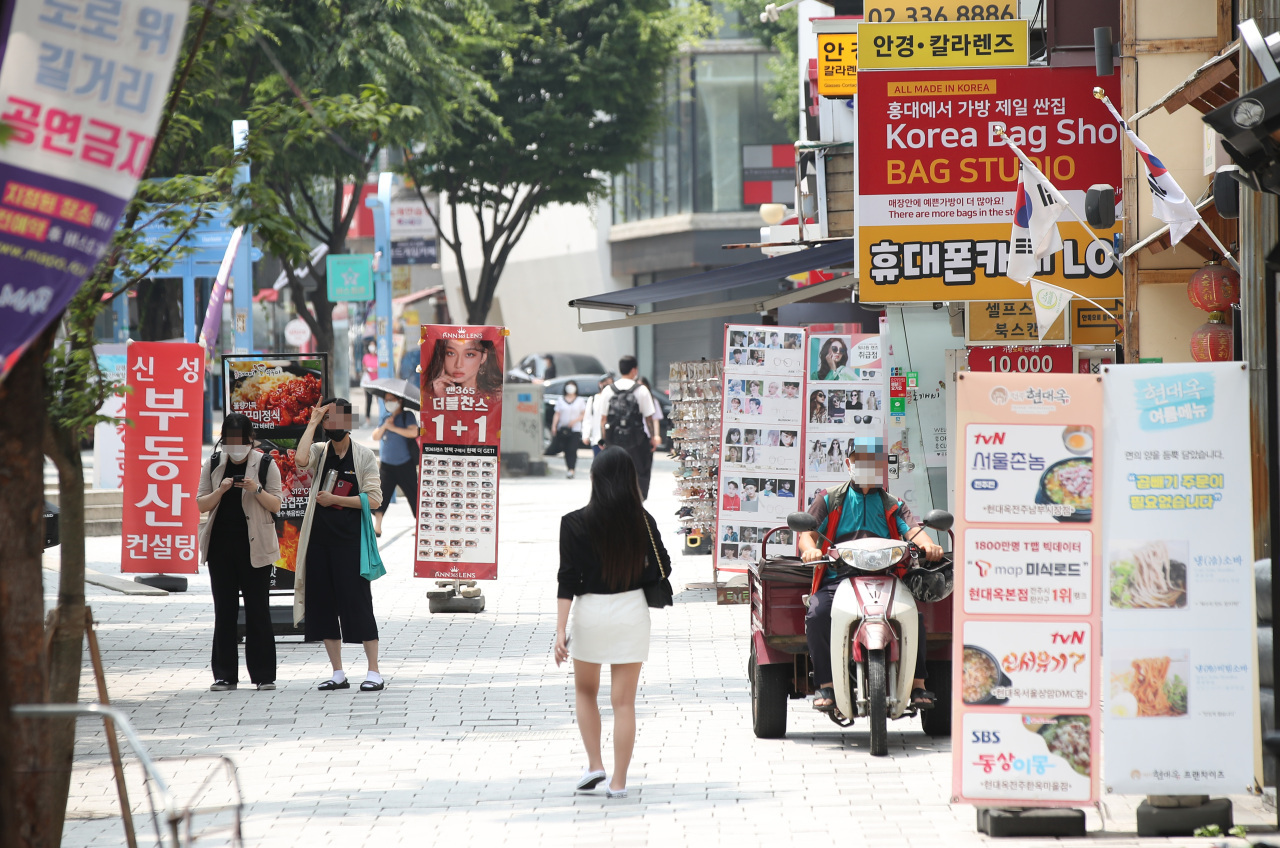 |
People walk on the street in Hongdae, Seoul, July 1, as the delta variant prompted the government to postpone the planned relaxation of social distancing rules. (Yonhap) |
Sales and net income for small businesses in South Korea dropped nearly 20 percent during the first half of this year, with a majority of business owners expecting worse later this year, a new survey has revealed.
Nearly 8 in 10 owners of small businesses, including restaurants, cafes and supermarkets, said their revenue had taken a hit so far this year, the survey released by the Korea Economic Research Institute on Monday showed. It was down by an average of 21.8 percent.
Clothing, flower and cosmetics stores took the heaviest hit, alongside restaurants and cafes, the data showed. Private academies, called hagwon, saw their revenue drop 16.3 percent.
Net income also was down by an average of 17.7 percent for 7 in 10 small-business owners, while noraebang -- Korean-style karaoke rooms -- and laundromats suffered a 21.5 percent drop.
Some 45 percent of small-business owners who have staff admitted to a drop in employment, while 49.6 percent said there had been no change.
Hopes for a speedy recovery are fading as a majority of business owners said revenue will drop during the second half of this year compared with one year ago.
“Considering the survey was conducted before the delta variant spread, the confidence of small-business owners will take a further hit later this year,” said Choo Kwang-ho, the head of KERI’s economic policy division.
Some 35 percent said vaccination to achieve herd immunity and ease social distancing rules was necessary, while 42.8 percent said the government should offer compensation for the economic damage caused by pandemic policy decisions such as social distancing. Over 30 percent supported reducing taxes, utility bills and labor expenses as a way to help small businesses.
“(The government) should prioritize quickly achieving herd immunity and easing social distancing rules while pursuing other policies such as stopping the minimum wage increase, or offering utility bill discounts or subsidies to help ease the burden on small businesses.
By Yim Hyun-su (
hyunsu@heraldcorp.com)







![[Today’s K-pop] Blackpink’s Jennie, Lisa invited to Coachella as solo acts](http://res.heraldm.com/phpwas/restmb_idxmake.php?idx=644&simg=/content/image/2024/11/21/20241121050099_0.jpg)
